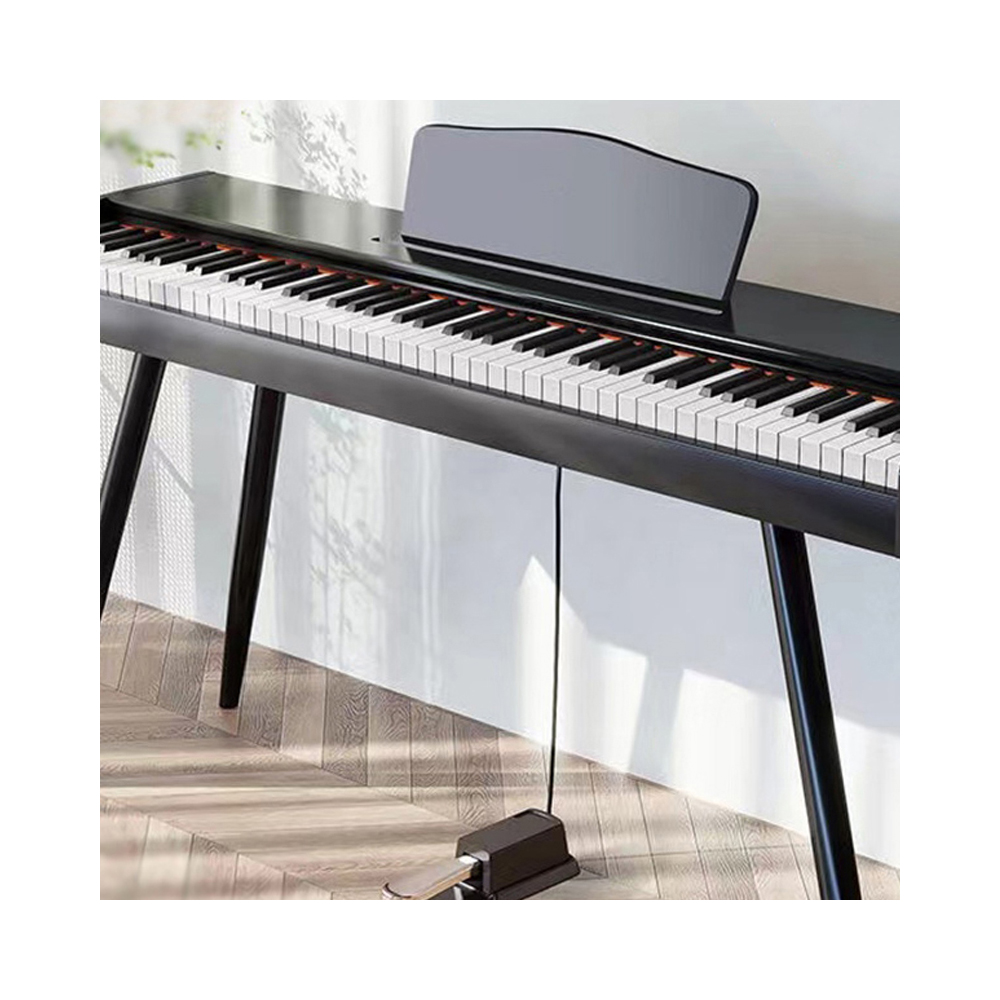The digital piano industry has witnessed remarkable advancements in recent years, shaping its future in unprecedented ways. As technology evolves, so does the potential for innovation in this domain. From cutting-edge sound reproduction to sustainability-focused manufacturing, the future of digital pianos promises to be transformative. Below, we delve into the key trends driving the evolution of digital pianos and what this means for musicians and enthusiasts alike.
1. Technological Advancements in Sound Reproduction
One of the primary drivers of the digital piano market is the quest for superior sound quality. Modern digital pianos are leveraging advancements in AI-driven sound modeling and multi-sampling techniques to replicate the nuances of acoustic pianos. These innovations ensure that each note is rich, resonant, and true to its original sound source.
- Physical modeling synthesis is gaining traction, enabling real-time sound adjustments based on touch sensitivity and dynamic expressions.
- AI-powered software analyzes player behavior, offering custom tonal adjustments to suit individual playing styles.
- Integration of spatial audio technology creates a more immersive listening experience, simulating the natural acoustics of concert halls or intimate spaces.
2. Enhanced Connectivity for Seamless Integration
The future of digital pianos is undeniably linked to connectivity. With the rise of smart homes and interconnected devices, digital pianos are evolving to offer seamless integration with various technologies.
- Bluetooth MIDI and wireless audio streaming enable players to connect their instruments to DAWs (Digital Audio Workstations), learning apps, and even home sound systems without cumbersome cables.
- Cloud-based storage and learning platforms allow players to save and share their performances effortlessly.
- Emerging platforms like AR/VR interfaces are poised to revolutionize music education, offering interactive lessons and practice environments.
3. Eco-Friendly and Sustainable Manufacturing
Environmental consciousness is becoming a focal point across industries, and the digital piano sector is no exception. Leading manufacturers are adopting sustainable practices to reduce their carbon footprint and appeal to environmentally conscious consumers.
- Use of recycled and renewable materials in piano construction, including sustainable wood alternatives and biodegradable components.
- Energy-efficient designs, such as low-power modes and solar-powered options, are gaining popularity.
- Brands are also focusing on eco-friendly packaging and reducing waste in the production process.
4. Portable and Versatile Designs
Modern lifestyles demand flexibility, and digital pianos are increasingly designed with portability and versatility in mind.
- Compact models with foldable keyboards and lightweight materials are catering to musicians on the go.
- Hybrid pianos that combine acoustic and digital elements offer players the best of both worlds, allowing for authentic performance experiences with the benefits of digital technology.
- Customizable designs, including modular setups, enable users to tailor their instruments to specific needs, whether for live performances or home use.
5. Integration of AI and Machine Learning
Artificial Intelligence (AI) is a game-changer for the digital piano industry, enabling innovations that elevate the playing experience.
- Smart accompaniment features allow the piano to create real-time backing tracks based on the player’s style and tempo.
- AI-driven error detection and feedback systems are enhancing the capabilities of music education tools.
- Machine learning algorithms are being used to analyze global music trends, inspiring new instrument features and updates.
6. Revolutionizing Music Education
The digital piano is reshaping the landscape of music education by making learning more accessible and engaging.
- Interactive tutorials and gamified apps encourage beginners to practice consistently while enjoying the process.
- Platforms like virtual piano lessons and real-time coaching software connect students with professional instructors globally.
- Integration of progress-tracking analytics allows learners to monitor their improvement and set measurable goals.
7. Expanding Market for Niche Features
The future will see a rise in niche-specific digital piano features tailored to professional musicians, hobbyists, and institutions.
- Stage pianos with enhanced durability and performance features for live shows.
- Educational models equipped with dual headphone outputs, split-keyboard modes, and teacher-friendly interfaces.
- Luxury pianos for high-end consumers, offering exquisite craftsmanship, premium materials, and personalized sound profiles.
8. Cross-Cultural Influences and Global Market Growth
The globalization of the music industry has influenced the digital piano market significantly. Manufacturers are diversifying their offerings to cater to various musical traditions and styles.
- Digital pianos now include ethnic instrument samples, enabling players to explore genres like jazz, classical, and world music seamlessly.
- Emerging markets in Asia, Africa, and South America are driving demand for affordable, feature-rich models.
- Collaborations with artists and cultural institutions are fostering innovations that reflect diverse musical heritages.
9. Emphasis on User Experience and Personalization
Digital piano manufacturers are focusing on creating intuitive interfaces and highly personalized user experiences.
- Touchscreens, rotary knobs, and gesture-based controls are making interfaces more user-friendly.
- Software updates allow players to customize sound libraries, adjust tuning settings, and explore experimental features.
- Personalization is extending to physical designs, with options for custom colors, finishes, and engravings.
10. Growth of Online Communities and Shared Learning
The rise of digital platforms is fostering vibrant communities of digital piano enthusiasts and learners.
- Online forums and social media groups provide spaces for musicians to share tips, performances, and gear recommendations.
- Live streaming and virtual concerts are offering artists unprecedented ways to connect with global audiences.
- Crowdsourced feedback on new models and features is driving customer-centric innovation.
The future of digital pianos is bright, driven by a combination of technological innovation, environmental consciousness, and an evolving global music culture. As the market expands, digital pianos will continue to offer players unmatched versatility, accessibility, and creative potential.

